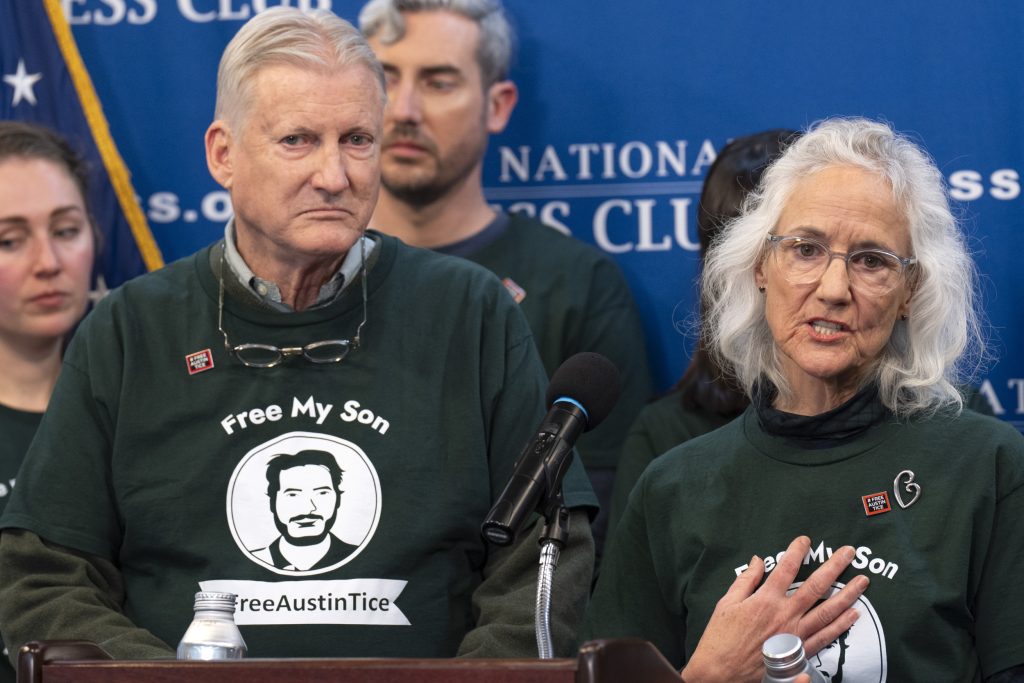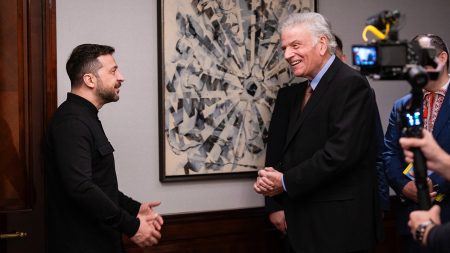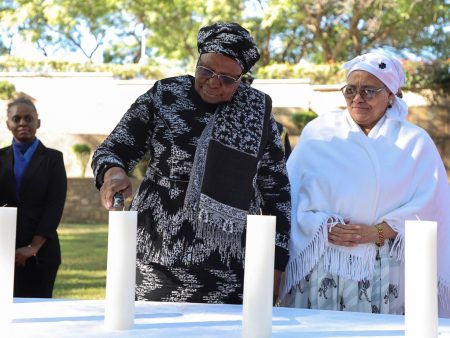The U.S. government’s unwavering commitment to securing the release of Austin Tice, an American journalist who disappeared in Syria over twelve years ago, continues with renewed vigor. Special Presidential Envoy for Hostage Affairs, Roger Carstens, embarked on a mission to Beirut this week, engaging with regional officials to glean any possible leads on Tice’s whereabouts. This diplomatic effort follows the tumultuous fall of Syrian President Bashar al-Assad’s regime, a development that potentially opens new avenues for information and negotiation. The State Department underscores the urgency of the situation, emphasizing their dedication to determining Tice’s location and ensuring his swift return home. Carstens’ current mission follows a previous clandestine trip to Damascus during the Trump administration, highlighting the continuous, albeit often discreet, efforts undertaken to locate Tice. Lebanon’s central role in mediation efforts further emphasizes the regional complexity surrounding this case.
The renewed hope for Tice’s safe return is fueled by recent statements from his family and the Biden administration. President Biden expressed optimism about Tice’s survival, although acknowledging the lack of “direct evidence” regarding his current condition. Debra Tice, Austin’s mother, conveyed her unwavering belief in her son’s survival, citing information from a credible, though undisclosed, source vetted by the U.S. government. This information indicates that Tice is not only alive but also receiving care. While expressing her natural maternal anxieties concerning the ongoing unrest in the region, Debra Tice remains resolute in her hope for her son’s return. The Tice family’s recent meeting with National Security Advisor Jake Sullivan underlines the administration’s commitment to keeping them informed and involved in the ongoing efforts. Marc Tice, Austin’s father, echoed his wife’s confidence, characterizing the information they received as recent and reliable.
Austin Tice, a seasoned journalist whose work has graced the pages of prominent publications like The Washington Post and McClatchy, vanished in 2012 near Damascus amid escalating conflict. A video released shortly after his disappearance depicted him blindfolded and pleading for help, a chilling reminder of his precarious situation. Despite Syria’s denial of holding him, the mystery surrounding his fate has persisted for over a decade. The ongoing turmoil in Syria, marked by the recent collapse of the Assad regime, has injected both uncertainty and a glimmer of hope into the search for Tice. While the upheaval creates new challenges, it also potentially disrupts existing power structures and information channels, offering a renewed opportunity to gather intelligence and negotiate for Tice’s release.
The Tice family’s hope is tempered by the realization that the volatile situation in Syria presents both opportunities and challenges. While the fall of Assad’s regime may disrupt existing power dynamics and potentially create openings for information or negotiation, it also introduces new uncertainties. Naomi Tice, Austin’s sister, expressed her frustration at the “wait-and-see” approach adopted by officials regarding the potential impact of the Syrian unrest on her brother’s case. This sentiment underscores the delicate balance between cautious optimism and the agonizing need for concrete action in such complex circumstances. The family’s plea is for continued and intensified efforts, leveraging any potential openings presented by the changing political landscape in Syria.
The collapse of Assad’s regime, a monumental shift in the Syrian power structure, occurred amidst reports of rebel forces entering Damascus, the nation’s capital. The swift and dramatic turn of events, with reports suggesting Assad’s flight from the city, marked the end of his 24-year rule. The opposition declared Damascus free of Assad’s control, a declaration underscored by the government’s evacuation of the Damascus airport and the halting of all flights. This dramatic shift in the Syrian political landscape presents a complex and evolving context for the ongoing search for Austin Tice. While the upheaval creates instability and uncertainty, it also potentially disrupts existing networks and opens new channels for information, offering a renewed impetus to the efforts aimed at securing Tice’s release.
The quest to locate and repatriate Austin Tice remains a top priority for the U.S. government. The recent developments in Syria, while turbulent, offer a potential window of opportunity for gathering new information and engaging with different actors in the region. The Tice family’s persistent hope, bolstered by recent intelligence, fuels the ongoing diplomatic efforts. As the situation in Syria continues to unfold, the focus remains on leveraging every possible avenue to secure Tice’s freedom and bring him home after more than a decade of uncertainty. The complex interplay of regional politics, shifting alliances, and the evolving situation on the ground necessitates a multifaceted approach, combining diplomatic engagement with ongoing intelligence gathering. The ultimate goal remains clear: to reunite Austin Tice with his family and bring closure to this protracted ordeal.










